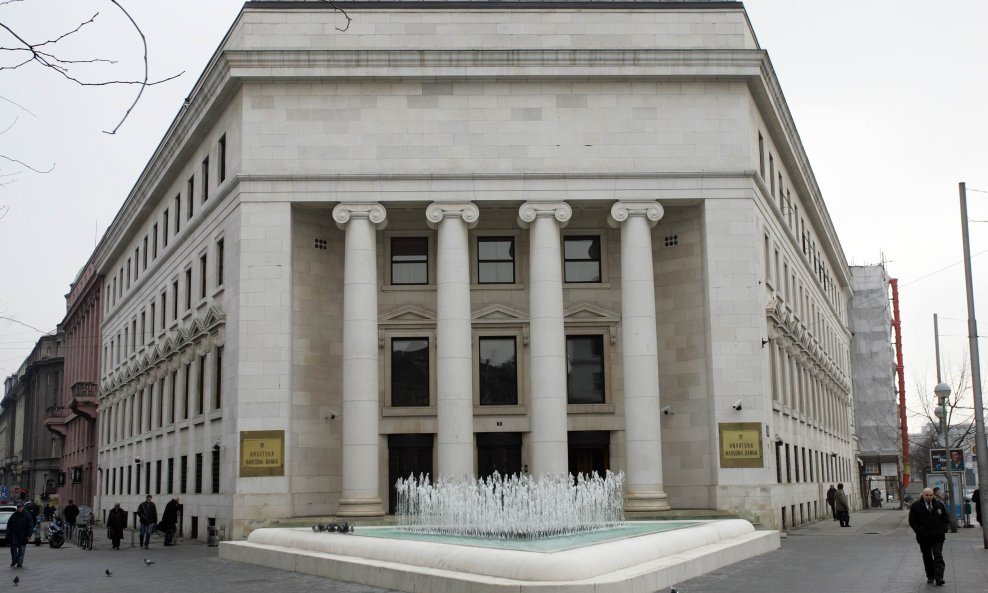The Croatian economy is sinking back into a recession, and even if it slightly recovers in the second half of the year, GDP is expected to shrink by 1.6% and the employment rate will continue to fall, the central bank projected in the latest edition of its publication "Financial Stability", released on Wednesday.
In the circumstances of the renewed expansion of the eurozone crisis, stringent financing conditions on the foreign and domestic markets and a decline in export demand, the domestic economy is again sinking into a recession. Since possibilities of the anti-cyclic effect of the fiscal and monetary policies are limited, the economic policy should be directed at structural reform in order to raise the potential growth rate, Croatian National Bank (HNB) analysts said.
They think that it is hard to avoid recession trends in the short term because, in the circumstances of an increased disinclination towards risk because of the financial crisis in the eurozone, the fiscal policy should remain directed at budget consolidation in order to keep the public debt at sustainable levels and thus ensure access to foreign financial markets.
At the same time, the impact of the monetary policy is limited by the need to maintain stable foreign currency rates against a backdrop of high foreign currency indebtedness and growing depreciation pressures because of reduced foreign capital inflows. In addition, the attempt at encouraging the credit activity of the banks through the release of liquidity by reducing the reserve requirements is turning into credit growth with difficulty because of weak demand for export-oriented companies and an increased risk of lending to companies oriented towards the domestic market.
HNB analysts noted that a projected moderate decline in public expenditure and a rise in revenues in 2012, a planned reduction of the central government budget deficit to about 4.2% of GDP and further consolidation over the next few years would result in the stabilisation of the public debt at below 60% of GDP.
The current account deficit is expected to remain at about 1% of GDP, which, together with an expected inflow of foreign direct investments of about 1.5% of GDP, should halt foreign debt growth, and together with the HNB's international reserves, should ensure the country's foreign currency liquidity in 2012.
HNB analysts said that the high foreign currency reserves and the good capitalisation of the banks guaranteed short-term stability. However, they warned that in the event of a further escalation of the eurozone crisis, disturbances were possible in the refinancing of corporate debt due and the withdrawal of funds of the foreign banks, which would require the appropriate use of foreign currency reserves to preserve financial and monetary stability.
The central bank said that deep structural reforms were a prerequisite for long-term stability, adding that in such circumstances the economic policy should focus on accelerating growth in the medium and long terms by stepping up reforms aimed at improving the investment climate and on transforming the economy by strengthening intellectual capital as a chief factor of competitiveness and sustainable growth.































